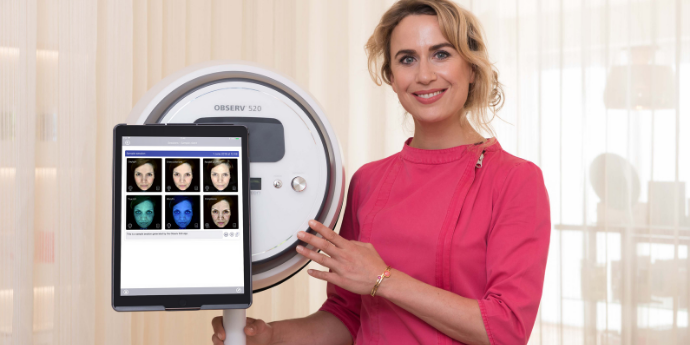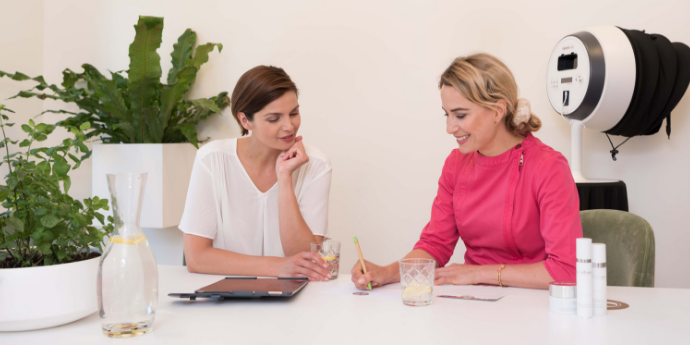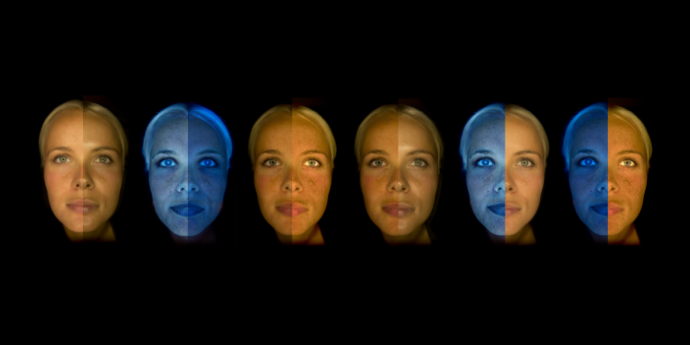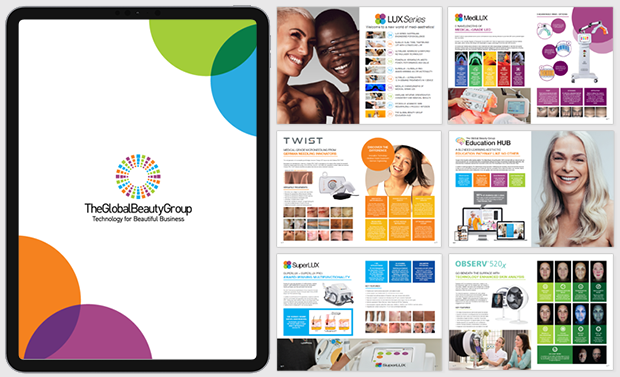Let’s take a look at the 6 OBSERV 520 observation modes in more detail
Enhancing sales results and client service experience
Equipped with six comprehensive observation modes to analyse skin health, OBSERV 520 allows both the skin professional and client to study skin irregularities in great detail and discuss the best course of treatment to return the skin to balance.
This interactive approach, combined with clearly defined visual evidence, is a great way to build customer trust and rapport during a skin consultation to enable skin professionals to confidently guide the client through to skincare and treatment solutions with ease.

Observation Mode: Daylight Mode
What are we measuring: We are evaluating the skin in bright but neutral illumination. It provides a clear clinical evaluation of the skin for before and after images
What skin conditions can we expect: Fine lines, wrinkles, skin sagging, signs of ageing
Recommended treatments: Skin firming or wrinkle-reduction treatments
Observation Mode: Cross Polarised
What are we measuring: With Cross Polarised mode, OBSERV works to visualise redness and discolourations in the skin
What skin conditions can we expect: Inflammation, pigmentation, rosacea, skin sensitivity and vascular disorders
Recommended treatments: Couperoses, rosacea and acne treatments
Observation Mode: Parallel Polarised
What are we measuring: Enhance the visualisation of the skin’s surface textures. Filter technology is used to enhance the surface reflection revealing the glyphic patterns, pore structures, fine surface textures and wrinkles in great detail
What skin conditions can we expect: Rough or bumpy skin and visible pores
Recommended treatments: Resurfacing treatments such as peels or microdermabrasion
Observation Mode: True UV
What are we measuring: Identify skin conditions hidden beneath the skin’s surface by generating light within the skin itself instead of being projected onto the skin
What skin conditions can we expect: Skin type, pore health, skin pigmentation and sun damage (even hidden pigmentation), sebum gland distribution, post-inflammatory hyperpigmentation and future skin concerns
Recommended treatments: Age-management treatments, acne treatments, pigmentation correction treatments and preventative treatments.


Observation Mode: Simulated Wood’s Light
What are we measuring: Replicate the illumination of the traditional Wood’s Lamp. In this mode, light and pinkish colouration appears on areas affected by oil production
What skin conditions can we expect: Lipid film distribution
Recommended treatments: non-comedogenic treatments and pore cleansing treatments
Observation Mode: Complexion Analysis
What are we measuring: Amplify the differences and impurities of the skin tone across the whole surface of the face. This amplification makes the influences of skin tone inhomogeneity on the apparent age far better distinguishable from the topographical ageing signs
What skin conditions can we expect: Skin tone distribution, photo-ageing level, pigmentation, areas of skin sensitivity/irritation
Recommended treatments: Skin radiance treatments and skin-soothing at-home skincare



